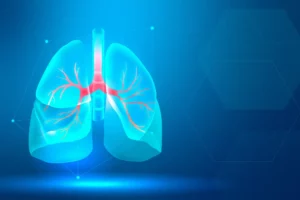 Cystic Fibrosis (CF) is a genetic disorder that affects the respiratory, digestive, and reproductive systems.
Cystic Fibrosis (CF) is a genetic disorder that affects the respiratory, digestive, and reproductive systems.
Today, we will explore not only its signs, causes, and treatment options but also shedding light on the underlying genetic factors that make this condition a challenging lifelong companion for many.
Signs of Cystic Fibrosis
- Persistent Cough. One of the most common signs of CF is a chronic cough, often accompanied by thick mucus.
- Frequent Lung Infections. Individuals with CF are more susceptible to lung infections due to the buildup of mucus in the airways.
- Breathing Difficulties. CF can cause shortness of breath and wheezing, making it harder to breathe.
- Poor Growth. In children, CF can lead to poor growth and weight gain due to malabsorption of nutrients.
- Salty Skin. People with CF often have salty-tasting skin because the condition affects the body’s ability to regulate salt levels.
Causes of Cystic Fibrosis
CF is caused by mutations in the CFTR gene, which controls the production of a protein that regulates the flow of salt and fluids in and out of cells. When this protein is defective, it leads to the thick and sticky mucus characteristic of CF.
CF is an autosomal recessive genetic disorder, meaning that both parents must carry a mutated CFTR gene for a child to inherit the condition.
Treatment Options
While there is no cure for CF, there are several treatment options available to manage the symptoms and improve the quality of life for those affected:
- Medications. Patients with CF often take medications to thin mucus, reduce inflammation, and fight infections.
- Chest Physiotherapy. This involves techniques to help clear mucus from the airways and improve breathing.
- Nutritional Support. A specialized diet and nutritional supplements may be necessary to ensure proper growth and development, especially in children.
- Lung Transplant. In severe cases, a lung transplant may be considered to replace damaged lungs with healthy ones.
- Gene Therapy. Research into gene therapy is ongoing, to correct the defective CFTR gene.
- Regular Monitoring. Routine check-ups and monitoring by healthcare professionals are crucial to detect and manage complications early.
Cystic Fibrosis is a genetic disorder characterized by thick mucus production that affects various systems in the body. While there is no cure, advances in treatment have significantly improved the life expectancy and quality of life for individuals with CF. Early diagnosis and comprehensive care are essential in managing this condition effectively.
Picture Credit: Freepik
